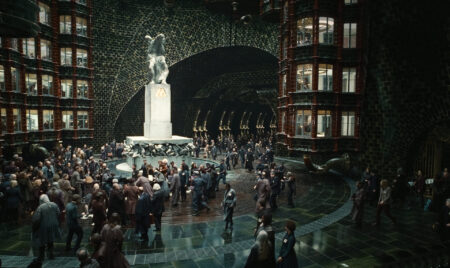The 67-year-old prominent Hollywood Pulp Fiction and Die-Hard actor Bruce Willis was recently diagnosed with deadly and incurable frontotemporal dementia. With an acclaimed career spanning over 45 years and also being a recipient of multiple eminent awards, he retired from acting in 2022 owing to the uncertain prognosis of aphasia (a disease that renders a person incapable of communicating) . His family although deeply engrieved at least feels relieved for the specific detection of his condition after having them left ambiguous for over a year.
Bruce Willis Early Life and Background
1978 as a comedy actor was the threshold of Bruce Willis’s impressive career which started out with a stutter and stammer. It was acting which diminished his stutter issues and claimed his first lead position in Blake Edward’s Blind Date. During the course of Willis’s four-decade career, he has acted in around 100 movies and first gained recognition in the comedy-drama TV series “Moonlighting,” and also received praise and rave reviews for his parts in “Pulp Fiction” and “The Sixth Sense” as well as a Golden Globe Award and two Emmys. The five “Die Hard” films, which were released from 1988 to 2013, feature Willis as the tough-as-nails New York detective who pursues criminals. Bruce has always voiced to address pressing issues and advocate social awareness which sooner or later had his cognitive abilities deterred.

Definition Of Frontotemporal Dementia
Frontotemporal Dementia is a blanket term for heterogenous neurodegenerative disorders of frontal and temporal lobes of the brain, which essentially regulate personality, conduct, and communication. When the nerve cells of the frontal and temporal brain cells are lost, they are affected by a wide range of illnesses. Some patients with frontotemporal dementia have major personality changes, being impetuous, emotionally cold, or socially inappropriate, while others lose the capacity to speak clearly. FTD is uncommon and tends to develop at a younger age than other types of dementia. Around 60% of FTD patients are between the ages of 45 and 64. FTD has been misdiagnosed as depression, schizophrenia, or Alzheimer’s disease in the past, according to the University of California, San Francisco (UCSF) Health, making it challenging to estimate the condition’s prevalence.
Causes and Treatment
In most cases, it is unclear what causes these alterations. The frontal and temporal lobes of the brain diminish in frontotemporal dementia. Moreover, certain chemicals build up in the brain. Frontotemporal dementia has been related to certain genetic alterations. Yet, there is no family history of dementia in more than half of those who acquire frontotemporal dementia. There isn’t one test that can diagnose frontotemporal dementia. Physicians search for illness symptoms and indications while attempting to rule out any other potential reasons. Early diagnosis of the ailment can be particularly difficult since frontotemporal dementia symptoms frequently coincide with those of other disorders. Therefore, there is no treatment for dementia. His family hopes that a better change can be brought in the future by bringing awareness about this disease.

Response to Willis’s disease
In 2021, the Golden Raspberry Award (Razzies) – a mock awards ceremony that recognizes the worst cinematic fails , created a category for worst Bruce Willis performance in a 2021 film. Upon the discovery of his aphasia, it revoked the prize. Many famous celebrities sent him their wishes for his better recovery starting from actor Selma Blair , Breaking Bad actor Aaron Paul , Jumanji and Cars actor Bonnie Hunt , US singer and actress Queen Latifah to American journalist Maria Shriver, a well-known advocate for patient care and research into brain disorders. A famous quote regarding dementia which every dementia patient needs to keep in mind his you have got dementia but dementia has not gotten you.













